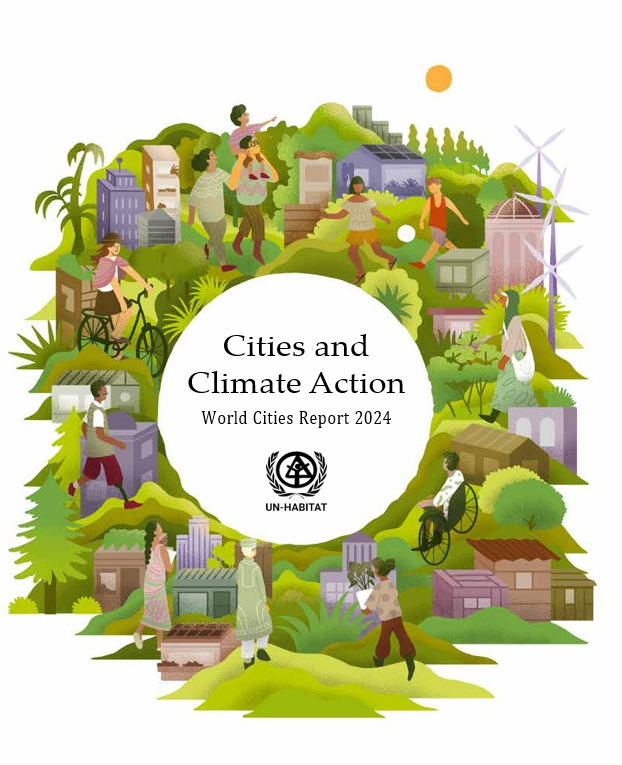Cities at the Crossroads of Climate Action and Resilience
Cities stand at the heart of the climate crisis, simultaneously vulnerable to its impacts and significant contributors to global emissions. From devastating floods and relentless heatwaves to rising inequality exacerbated by climate stress, urban areas face challenges that demand urgent, transformative action.
Cities stand at the heart of the climate crisis, simultaneously vulnerable to its impacts and significant contributors to global emissions. From devastating floods and relentless heatwaves to rising inequality exacerbated by climate stress, urban areas face challenges that demand urgent, transformative action.
The World Cities Report 2024 delivers a critical analysis of the climate threats confronting urban populations worldwide. It highlights how marginalized communities, particularly those affected by poverty, gender disparities, or disabilities, bear the brunt of these impacts, often with the least resources to cope. Yet, this intersection of rapid urbanization and environmental stress also presents unprecedented opportunities for change.
With inspiring examples of community-led innovation and inclusive climate strategies, the Report emphasizes how cities can act as hubs for climate resilience. By addressing both the environmental and social dimensions of the crisis, urban climate action can deliver widespread benefits:
Poverty reduction through green job creation.
Resilient infrastructure that protects vulnerable communities.
Improved public health through sustainable practices.
Restoration of ecosystems that support urban life.
The time to act is now. Decarbonization and adaptive urban planning are key to avoiding catastrophic outcomes and creating more inclusive, sustainable cities.
Explore the World Cities Report 2024 to discover how cities are leading the way, leveraging innovative solutions and collaborative efforts to tackle climate challenges head-on.
[Read the Report Here]

